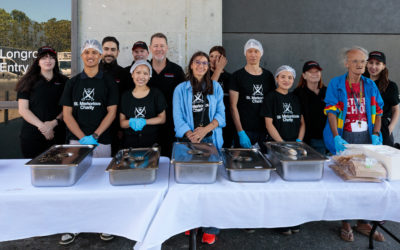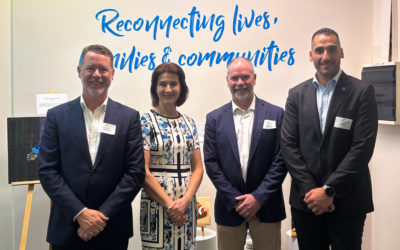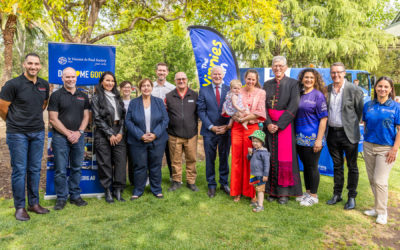Melrose Park Public School is the third Sydney school to benefit from a multi-school three-year environmental education program being conducted by the Seed Harvest Spoon Education Foundation and funded by corporate sponsor, PAYCE.
The $200,000 Schools Program now covers support for three school community gardens in outer metropolitan Sydney, the other two being Telopea Public School and Riverwood Public School.
Under a partnership agreement with PAYCE and the schools, Seed Harvest Spoon will deliver weekly free workshops and tutorials over the next three years commencing first term in January. PAYCE has also provided funds to assist the schools to complete their 2015 programs of environmental learning.
The partnership is worth $52,000 to Melrose Park Public School, made up of $48,000 of three years’ support plus $4,000 to complete activities at the school in 2015 final term. In addition, PAYCE has provided a further $48,000 to Seed Harvest Spoon Education Foundation to cover the organisation’s development and operations.
Seed Harvest Spoon, a not-for-profit organisation based in Sydney’s inner west, specialises in early childhood and primary school environmental education. PAYCE has been a strong supporter of environmental education and food gardening programs in schools and communities for several years.
The partnership with Melrose Park Public School was announced today by Parramatta MP Geoff Lee and PAYCE General Manager, Dominic Sullivan during a visit to the school and inspection of its garden.
Principal Clare Kristensen and school captains Jasmin Ahlawat and Dean Masmanidis greeted the visitors and showed them through the garden.
Dr Lee said the generous funding gesture by PAYCE would allow the school to enhance and expand its garden activities and strengthen its relationship with the local community.
“The garden has been a fantastic success for the school community over the last couple of years and the broader community have got right behind it through working bees and the volunteers program,” he said.
“The other good news is that the students are becoming better informed about growing food and biodiversity and, in turn, are encouraged to eat more fruit and vegetables, which in turn leads to healthy lifestyles.”
Mr Sullivan said PAYCE was thrilled to offer the long term environmental education program to Melrose Park Public School in partnership with Seed Harvest Spoon.
“We see any program that promotes the development of healthy, local communities through personal health and wellbeing, strong and connected communities and a healthier environment as being most worthy of support,” he said.
PAYCE Managing Director, Brian Boyd said the program showed young children the importance of the natural world and how healthy eating choices contributed to a healthy and long life.
“Melrose Park Public School has developed a wonderful garden of which they can be justly proud, but need money and other resources to keep it going,” he said.
“With Seed Harvest Spoon on board, the school’s students and teachers now have the benefit of professional tutorship and mentoring by the very experienced and enthusiastic team,” Boyd said.
Principal Clare Kristensen said the school’s Kitchen Garden plays an important role in the environmental education of students and there was a lot to be gained from the PAYCE sponsored program.
“The garden is also used in relation to other activities such as digital photography, films and art,” she said.
“We are very grateful to PAYCE and their team for their corporate support and we look forward to a great relationship with them and the Seed Harvest Spoon team.”
Michelle Carrick, Seed Harvest Spoon’s Program Director said her organisation would deliver a staged program to the schools over the next three years.
“My colleagues and I are very excited to be able to continue the learning program we have just started at Melrose Park and one of the first steps in the New Year will be strengthening the volunteer and training programs,” she said.
“The final stage further down the track will involve empowering communities to lead the sustainability practices in their established gardens and will also include neighbouring schools participation through incursions and additional programs.”


